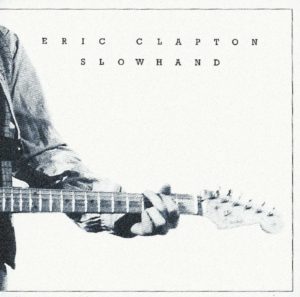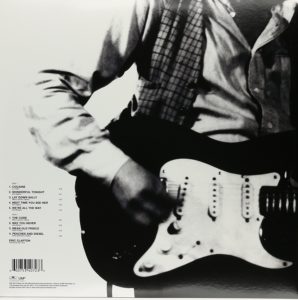Marketplace
2012 Polydor Records PRESSING
- Audio Stereo
- Catalog Number B0017702-01
- Release Year 2012
- Pressing Weight 180g
- Jacket Style Gatefold
Slowhand was Eric Clapton’s fifth solo album, and his first to hit the charts since his 1974 sophomore record, 461 Ocean Boulevard (1974). In the interim, he released two studio efforts—1975’s There’s On in Every Crowd and 1976’s No Reason to Cry, neither of which caught on outside his dedicated fan base. All that changed with Slowhand along with its two hits (“Wonderful Tonight” and “Lay Down Sally”) and radio staple (“Cocaine”).
Clapton brought Glyn Johns on board to produce. Wisely, Johns kept the musicians on track by discouraging the kind of jamming Clapton indulged on other recordings. Slowhand may not be terribly different in feel from the guitarist’s previous three albums, yet it proves more consistent throughout—no doubt aiding its commercial success.
Sonically, Slowhand features a wealth of low-frequency energy. Miles Showell’s master, cut at half speed from a digital master, gives Carl Radle’s bass better focus and attack all the while slightly pulling back on its volume. As a result, other elements emerge with added clarity. On “Cocaine,” the multi-tracked guitars are easier to hear individually, and Clapton’s voice aptly centered.
On my original RSO pressing, Clapton’s guitar on “Wonderful Tonight” sits forward in the mix. Here, it moves back a bit, contributing to an improved overall balance. Yvonne Elliman’s harmony vocals are clearer and more audible, and Jamie Oldaker’s drums cleaner. Clapton and George Terry’s guitars are also well separated throughout, a trait that makes it easier to hear their interaction on tracks such as “Lay Down Sally.” String pulls and riffs that appear overly emphasized on the earlier pressing now naturally flow. On “The Core,” the longest cut on the set, keyboards and other elements of the arrangement come through with more balance. Mel Collins’ saxophone solo seems less aggressive, and Clapton’s feature part tastefully nuanced.
There’s more energy on the earlier pressing, and in some ways, Slowhand’s subdued nature benefits from such slightly pushier mastering. Pulling the volume up a tad on the new pressing, however, brings things into sharper relief and reveals the music as more layered and carefully assembled. The understatement of Clapton’s slide guitar and Terry’s sympathetic accompaniment on a cover of Arthur Crudup’s “Mean Old Frisco” sound more evident, for example.
Slowhand ranks among Clapton’s best records. Polydor’s reissue presents it with more warmth and subtlety than the original.
Slowhand



 4
4
